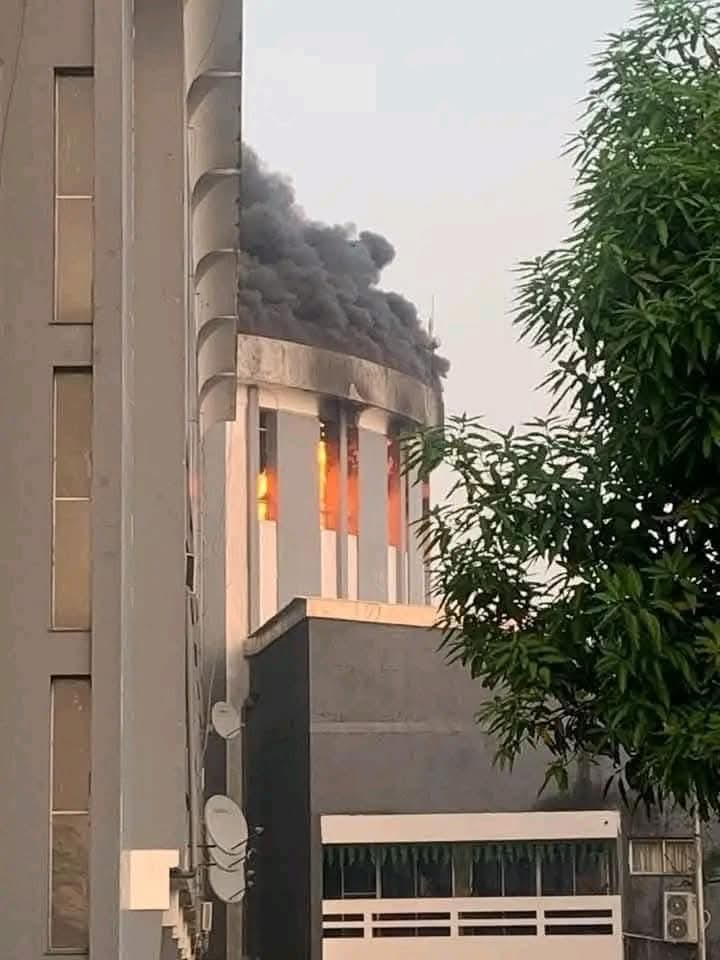The Capitol Building arson case in Monrovia, Liberia has become embroiled in procedural complexity following an unexpected delay in the final ruling on a crucial motion to suppress evidence. This motion, filed by the defense team representing former House Speaker Cllr. Jonathan Fonati Koffa and his associates, centers on allegations of torture and sodomy inflicted upon the defendants during their detainment. The court, presided over by Judge Roosevelt Z. Willie, had initially scheduled the ruling for September 18, 2025, contingent upon the submission of a medical examination report to assess the veracity of these claims. However, this anticipated date passed without a ruling, leaving observers and stakeholders in a state of uncertainty. The court subsequently rescheduled the ruling for September 24, 2025, further intensifying speculation surrounding the case.
The delay stems from a series of contentious debates concerning the medical examination process itself. The defense team has vehemently opposed the use of government-affiliated medical facilities, arguing that their connection to the Ministry of Justice and the Liberia National Police could compromise the impartiality of any resulting medical reports. They cite a previous incident involving co-defendant Thomas Etheridge, who collapsed after allegedly being tortured and whose condition was subsequently attributed to malaria by doctors at the government-linked AMI Expeditionary Healthcare, despite claims of severe beatings. This incident fueled the defense’s distrust and prompted their insistence on an independent medical examination conducted by an institution free from government influence.
The defense’s concerns about the medical examination process escalated on September 8, 2025, when they formally rejected the court’s proposal for a medical checkup at the John F. Kennedy Medical Hospital, another government-affiliated facility. They argued that subjecting the defendants to examination at such an institution could pose a life-threatening risk given their alleged injuries and deteriorating health conditions. Fearing that the alleged torture, including beatings and waterboarding, had resulted in severe injuries, including urinary tract infections and blurred vision, the defense filed a motion for an independent medical examination. This motion emphasized the urgency of the situation, claiming that without proper and independent medical attention, the defendants’ conditions could worsen significantly, potentially leading to their deaths.
The court, however, initially dismissed the defense’s concerns regarding the impartiality of AMI Expeditionary Healthcare. Judge Willie asserted that AMI operates under international standards and maintains its independence, making it a suitable choice for conducting a neutral medical assessment. He subsequently ordered all defendants to undergo a comprehensive medical examination at AMI, with the Ministry of Justice covering the expenses. The deadline for submitting the medical reports to the court was set for September 17, 2025, in anticipation of the September 18th ruling. The failure to deliver the ruling on this date, and the subsequent rescheduling, suggests that the medical reports were either not submitted on time or have presented further complexities that require additional deliberation.
The charges against the defendants, which include arson, criminal mischief, criminal conspiracy, criminal solicitation, criminal intent to commit murder, aggravated assault, illegal possession of a firearm, release of destructive forces, recklessly endangering another person, and theft of property, underscore the gravity of the case. The alleged arson attack on the Capitol Building carries significant political and social ramifications, making the trial’s outcome a matter of intense public interest. The defense’s allegations of torture and sodomy introduce a layer of human rights concerns that further complicate the proceedings.
This case is now at a pivotal juncture. The rescheduling of the final ruling on the motion to suppress evidence, coupled with the ongoing dispute over the medical examination process, has created an atmosphere of uncertainty and heightened anticipation. The court’s eventual decision on the motion to suppress evidence will significantly impact the trajectory of the trial and the admissibility of key evidence. The delay underscores the complex interplay between legal procedures, human rights considerations, and the pursuit of justice in this high-profile case. The outcome will undoubtedly have far-reaching consequences for the defendants and the broader political landscape of Liberia.














